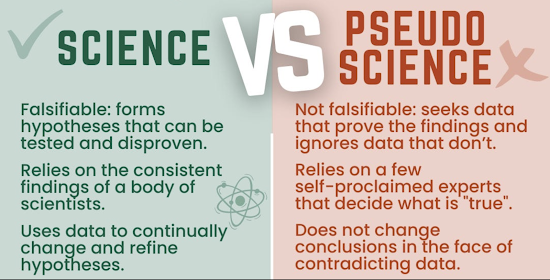Another major characteristics of Pseudo Science: Naming. What is "audibly transparent"?
TLDR:
Naming is another art of Pseudo Science.
A forum named as "audio science review forum" or "sound science forum" doesn't automatically mean its contents / claims are based on objective scientific evidence. Most likely than not, these contents / claims are questionable as they are based on pseudo science "evidences".
Audibly Transparent
Let's have a look of the term "audibly transparent".
I did try a search (Search results for query: audibly transparent | Audio Science Review (ASR) Forum) on the term "audibly transparent" on ASR. I found there are a lot of discussions / usage about it:
One of the famous thread there is Serious Question: How can DAC's have a SOUND SIGNATURE if they measure as transparent? Are that many confused? | Page 468 | Audio Science Review (ASR) Forum. It has 468 pages already and keep going:
There are many pseudo science claims in the above thread. If I have time, I will highlight them to you in my future blogs.
What is Audibly Transparency?
I found the following thread attempting to explain the term: When is a DAC or Amp audibly transparent? | Audio Science Review (ASR) Forum. Just to quote a few here:
It is a
vague term. Those "audio science" guys knew it.
No one in the "audio science" forum can explain the term accurately and precisiely.
Sounds fishy? Yes, it is fishy.
Real science never use vague term. Then why they still use this vague term (if they are really indeed talking about real science based on objective scientific evidence)?
Why "audio science" guys still use the vague term "audibly transparent" even they cannot well define the term?
They use it intentionally to confuse people. A vague term can give pseduo scientists a lot of benefits. (Are they taking the advantage of benefits of doubt?) and help them to deliver hidden message.
Hidden message: The term audibly transparent gives a sense of "perfect" or "excellent".
In most (non-"audio science") people's mind, audibly transparent is the holy grail they are looking for. If a DAC or an AMP is "audibly transparent", it is considered as "perfect" or "excellent" (from playing back music point of view).
i.e.
By defintion, if the original analog signal is A, the output of an audibly transparent DAC should/would reconstruct losslessly, smoothly, and with the exact timing of the original analog signal A.
Correct? Is it something in your mind?
No, it is not correct. "Audio science" guys have a different definition of the same term. Their defintion of audibly transparent is based on SINAD, frequency response, etc...
A lot of non-"audio science" people are tricked by this term. I heard the above (in blue) (or something similar) from many people on discussion forums and arguing about audibly transparent DAC.
In fact, there is no audibly transparent DAC (based on the blue defintion above). I will explain later in my other blog.
Summary
Naming is the art of pseudo science. Audibly transparent is a vague term and those "audio science" guys knew it.
Real science don't use vague terms; only pseudo science love the vague terms.
Vague terms give a lot of benefits to the pseudo scientists. Benefits of doubt is one of these benefits.
A well known vague term could help the pseudo scientist to deliver hidden message too. Like "audibly transparent" DAC give people a feeling of "perfect" or "excellent" but in fact they are not.
When you hear vague term, e.g. audibly transparent, in any scientific claim (or any claim people said that is based on science), it is an indication that the claim is highly likely a pseudo science claim and the people who are making / supporting the claim are highly likely pseudo scientists.









Comments
Post a Comment